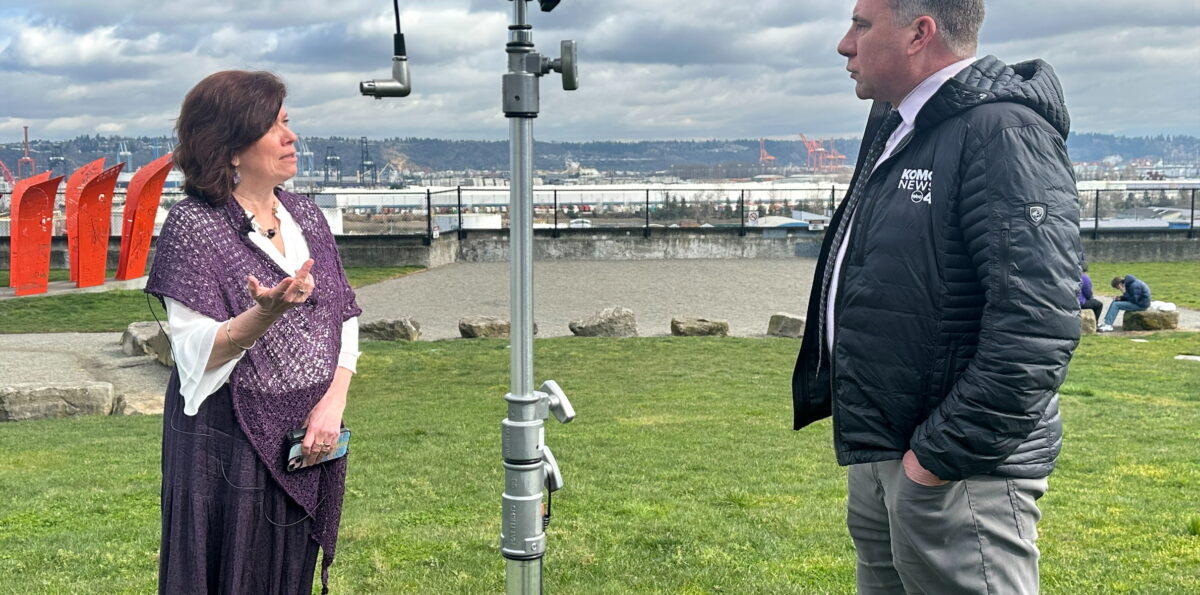Safeguarding your family from measles

Quick facts on measles
- Measles is a highly contagious respiratory virus that can cause severe health problems
- The only way to protect yourself and your family from measles is to get vaccinated
- The vaccine is safe and effective and provides durable, long-term protection
Measles is making a comeback. Not yet three full months into 2025, infections have already occurred in Washington and at least 11 other states. This serious disease is preventable through a two-dose vaccination — less than 5 percent of measles cases this year have occurred in people who are vaccinated.
“In 2000, the U.S. declared measles eliminated because as a nation we had such high levels of herd immunity from vaccination,” says Mary Fairchok, MD, a pediatric infectious disease specialist at MultiCare Mary Bridge Children’s Hospital.
Herd immunity means that when enough of a population is immune, it’s very difficult for a disease to spread. Yet in recent years, herd immunity has declined due to vaccine misinformation.
“At least 95 percent of the population must be vaccinated in order to avoid outbreaks of measles,” Dr. Fairchok says. “The percentage of vaccinated people has now dipped below that threshold leaving communities, including those in Washington, vulnerable to outbreaks.”
What is measles?
Measles is a virus that spreads from person to person through the air. Since the virus can remain in the air for several hours, it’s possible to catch measles by entering a room where an infected person has been.
Measles is so contagious that up to nine out of 10 people who are near an infected person are likely to get sick — unless they are immune, reports the Seattle & King County Department of Public Health.
Symptoms of measles include:
- High fever
- Runny nose
- Cough
- Red, watery eyes
- Blotchy rash that starts on the face and spreads all over the body
While often referred to as a “childhood disease,” measles can infect anyone — and it can cause severe health problems. These include diarrhea, ear infections, pneumonia and permanent brain damage.
Measles can also be fatal. Before the introduction of the vaccine in 1963, measles led to approximately 2.6 million deaths each year around the world. A recent outbreak in Texas has led to the first U.S. measles death since 2015.
Those most at risk for measles complications include:
- Children under 5
- Adults older than 20
- People with weakened immune systems
- Pregnant people — who are at risk for premature labor, miscarriage and the delivery of low-birth-weight babies
Dr. Fairchok says "don't believe everything you see online"
The measles vaccine does not cause outbreaks. The measles vaccine cannot cause the disease to spread from person to person.
Vitamin A does not prevent or cure measles. Doctors may give vitamin A to patients who are infected with measles because the disease can cause vitamin A levels to drop. Too much vitamin A can be harmful.
Vaccines do not cause autism. This is a recurring myth. Multiple studies have disproven the claim that vaccines cause autism.
How to protect yourself and your family
Vaccination is the only way to protect yourself and your child from measles. The measles, mumps, rubella (MMR) vaccine provides durable protection against each of these viruses and is extremely safe and effective. To receive maximum protection, you must get two doses of the MMR vaccine.
“Approximately 93 percent of the population will respond to one dose, whereas 97 percent of the population responds to two doses,” Dr. Fairchok says.
Here’s what to know about the vaccine:
- The first dose is usually given to babies between 12 and 15 months.
- The second dose is given when children are between 4 and 6 years old, but the second dose can also be given 28 days after the first in an outbreak situation.
- Babies under a year old don’t respond well to the vaccine, so they are especially vulnerable to infection if exposed. But in an outbreak, doctors recommend that infants 6-12 months receive one dose. They will still need to get their regular doses after 12 months.
Getting the measles vaccine within 72 hours after exposure may stop a person who was not fully vaccinated from getting sick. Unvaccinated, high-risk people, such as infants who are too young to get the vaccine, may be given another type of medication called immune globulin within six days of exposure to help protect them from infection.
How to get vaccinated
There are multiple ways to get the MMR vaccine for yourself or your child:
- Make an appointment with your primary care provider or pediatrician
- Visit the Mary Bridge Children’s Immunization Clinic (in Pierce County)
- Use the Washington State Department of Health’s Vaccine Finder tool
If you’re not sure whether you’re protected from measles, talk to your primary care provider.
What to do if you’ve been exposed or have measles symptoms
If you suspect you or your child have measles, or that you have been exposed to the virus, it’s important to seek care. However, please call your doctor or other health care provider before you go. They can advise you on next steps to help avoid exposing other patients or medical staff to the virus.
Do not arrive at your doctor’s office, urgent care or other walk-in clinic unannounced, as this may spread measles to others.
For more information about measles, please visit the Washington State Department of Health.
Have an unanswered measles question?
Get trusted information from Dr. Fairchok in her current Q&A with Seattle’s Child, whose team is helping us clarify vaccine doubts and other misinformation online.
If you don’t see an answer to your question, you may submit it to Seattle’s Child for inclusion by contacting Cheryl Murfin at [email protected].
If your family has been exposed or has an urgent measles question, contact your pediatrician.
